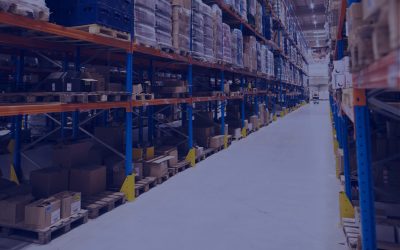The conflict in Eastern Europe has sparked a global shipping crisis. Aerodoc’s experts explain why rethinking route design will be key to avoid bigger disruptions in the supply chain.
A new scenario for global logistics has emerged on February 24th, 2022, as Russian troops invaded Ukraine. Although the scope and duration of the war are still unknown, there is enough evidence that this conflict will severely disrupt global supply chains, increase the cost of critical fuels such as oil and gas, delay even further container restocking at seaports and reduce air freight availability in Europe and Asia.
But those are not the only immediate effects of the war. Uncertainty over the economic recovery in the post-pandemic era is expected to increase for several reasons, from a hike in commodity prices to potential shortages of key supplies. Logistics operators are already facing new administrative challenges – the sanctions package announced by NATO member countries against Russian assets could paralyze at least tens of thousands of deliveries at sea or disrupt delivery contracts in the future.
What can be done? “First of all, you must understand the scenario before acting,” says Dan Zonnenschein, COO of Aerodoc Inc, explaining that “we lament the conflict that just broke out and understand that it may negatively impact global logistics. Therefore, we are working together with our customers to plan their logistics processes in even more detail to mitigate potential cost increases and delays in execution times.”
Aerodoc has a team of logisticians, engineers and trade compliance professionals monitoring disruptive events such as the war to understand the dynamics at play and propose solutions. Here are five keys to understand the impact of the war in Ukraine on logistics:
1) Energy prices will rise
This is already happening. Brent crude prices surpassed $ 105 for the first time since 2014 and gas and electricity – partially generated on gas power plants – in Europe are starting to increase. This is due to Russia’s position as Europe’s main provider of fossil fuels and the fact that the European Union has halted certification of the Nord Stream 2 gas pipeline, which would double Russian gas deliveries to Europe while bypassing Ukraine.
2) Freight costs will increase
Shipping goods will become more expensive – and not just because of the rise of oil. The war sent logistics operators into crisis mode, and availability is being checked every minute. Ukraine had successfully achieved its goal of becoming a key agent for rail freight under China’s Belt and Road Initiative. Rail freight from China to the EU doubled between 2019 and 2021, but now alternate air and ocean routes will have to be found. According to Forbes magazine, projections indicate “Ocean freight is going to increase 2-3x from $10,000 to container to over $30,000 per container and Air freight spot rates and lead times are going to increase 3-4 times.”
3) Container buffer capacity will decrease
The pressure over ocean freight will further constrain container availability. The COVID-19 crisis had already erased the buffer capacity for ship containers. In this sense, a conflict on the Black Sea affects that already scarce capacity. With containers stuck on seaports, no empty containers are returned to ships. With no buffer capacity, future bottlenecks will be even more severe in that region.
4) Air freight will be restricted
The fate of AN-225, the aircraft with the biggest carrying capacity ever, which was parked on Kiev Airport as the facility was being bombed, is a perfect example of the current scenario for air freight. The number of available flights to the region has been drastically reduced since the invasion began and Russia closed its own airspace to the UK as a response to British sanctions. Limited air freight availability will severely hamper the delivery of critical and perishable supplies.
5) Europe’s supply chain will be hit
Research from Liverpool John Moores University shows that logistics and shipments will be one among the hardest-hit industries by the war in Ukraine, adding four more elements: energy, food, metals and microchips. Any shortage or price increase for those four commodities will directly hit European supply chains – and if the conflict lingers, the impact will be global.
The way ahead
In a critical scenario for global logistics, decision-making must be fast and based on the best information available. Global excess inventory management and streamlining relocation processes will be essential. In some cases, Importer of record (IOR / EOR) solutions will be a priority due to the urgent need to create international shipping and trade links with non-traditional destinations.
That is exactly what Aerodoc’s team is working on currently. “We are working together with our customers to speed up route design processes,” explains Estefanía Sisatzky, Sr. VP of OPS & Customer Service at Aerodoc.
According to Sisatzky, one of the strategies consists in “switching from long to shorter supply chains, rethinking route design virtually in real time and jumping ahead of potential scenarios in this new context.”
“The worst we can do in these times of uncertainty is staying still, because our business is actually about keeping up all the time,” she added.




